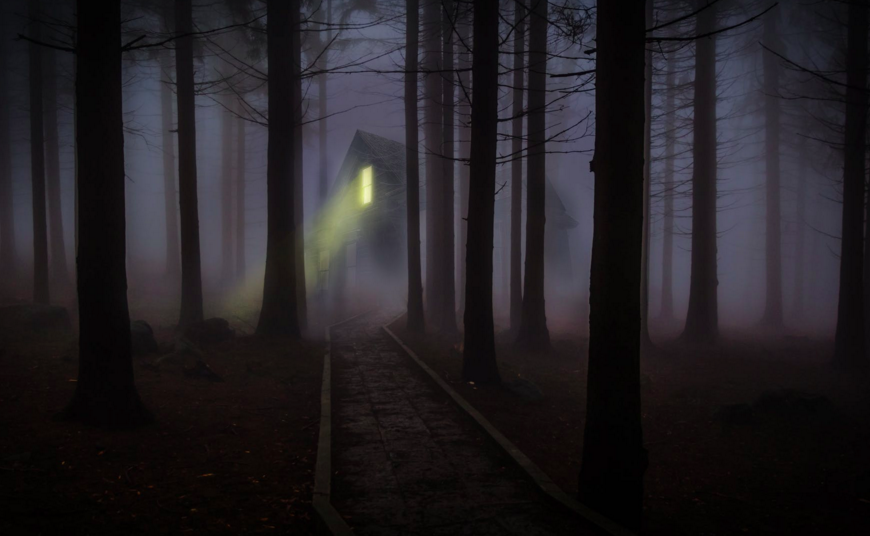
There are SO many reasons why being a professional author is TOUGH. Much of what authors do is counter to human nature. It is NOT natural to sit still and write a 100,000 words. It’s human nature to avoid stress, pain, and trauma, while an author’s job is to inflict as much suffering as possible.
Good writers are death dealers, anguish agents, and pain peddlers (which probably is why we freak ‘normal’ people out). Yet, we know torment is necessary for the greater good. A ‘story’ without seemingly unbeatable odds, terrifying stakes, and white-knuckled tension isn’t a story.
It’s self-indulgent tripe.
The ultimate objective of any author worth their ink cartridges is to create so much pressure we might just give our readers the bends.
Yet, this is not ‘natural.’ It is also not simple. There is nothing about being an author that is easy, and thing is?
Most of us fear we don’t have what it takes.
We’re also terrified to admit this. So what do we do? We become our own worst enemies and self-sabotage. And, since writers generally are smart, we self-sabotage in ways that appear to be REAL work to the untrained eye.
Thus, today, we’re going to discuss some of the clever ways writers self-sabotage. Since I’ve been guilty of ALL of these (because I’m a ridiculous overachiever), I can speak from experience. When it comes to self-sabotage, I would have been top of the class…but didn’t study for the final until the night before.
Self-Sabotage—Give Me Liberty OR Give Me DEATH!

This writer longs to be completely FREE! No boundaries, restrictions, or rules. Total liberty. They throw caution to the wind and GO!
In the writing world, we refer to folks who write by the seat of their pants as ‘pantsers.’ Many new writers start out as a pantser, because we are dying to WRITE. We love ALL THE WORDS and want to get them down and on the page. Planning takes TIME! Ruins the spontaneity. Who needs a plot? *rolls eyes*
My story can’t be forced. Plot will reveal itself. Like, it’s totally ORGANIC.
***Know what else is totally organic? Bull$#!t. Just food for thought 😉 .
Anyway, this type of writer might (mistakenly) believe that an outline or anything remotely resembling a structure equals ‘formulaic writing.’ I know, because I claimed that nonsense at one time as well.
Truth was, I wanted to play with my imaginary friends, and learning craft was hard and boring and looked way more like HARD WORK than I was comfortable with.
Also, obviously, I was an ‘exception’ due to my superior, innately born, and gifted-from-angels ‘talent.’ Thus, the rules applied to everyone but me, because *hair flip* I was smarter.
Yep, sure.
All excellent stories have structure, because a story is akin to a living organism. It needs BONES, because guess what had no bones? The Blob. If we want a squishy creature that just keeps getting bigger and bigger by absorbing more characters, descriptions, plot bunnies and adverbs?
Meet BLOB, not BOOK.
If pantsing is your jam, that’s fine. But authors who are excellent pantsers took time to learn and understand how story structure WORKS. Sometimes this is a person who’s read a gazillion books. They’ve read SO many novels, structure is almost ingrained into their marrow.
Perhaps they wrote a crap ton of bad books that fizzled and died. After years of writing utter crap, eventually they didn’t.
These authors are like the self-taught musician who plays by ear.
Problem with this approach is a writer is more likely to give up than be successful. A creative can only endure so many stillborn stories, before we just give up.
Been there.
A person who learns to play a guitar by listening to music and plucking around can possibly be AMAZING. However, classes covering even basics like finger positions and chords can help…a lot. The would-be guitarist will get to making something that sounds like actual ‘music’ far faster.
Thus, the self-sabotage is not the writer’s choice to be a pantser, rather the almost savage reaction to any suggestion regarding learning structure.
Deep down the reason the writer won’t consider a log-line, outline, basic plot points is because of two false beliefs. First, they believe if they ‘succumb’ to *shivers* structure, they therefore lack talent.
Only amateurs need paint-by-numbers. <—me
Secondly, they might also believe they really DON’T have talent/ability. Thus, if they actually read the books and took the classes, they’d have no reason NOT to write amazing stories. <—totally me, too
Fearing authentic failure, the Give Me Liberty or Give Me Death crowd makes certain to always pick the path that leads to ‘something other than them’ being the source of failure. This could be failure to ever finish, or failure to write a book that sells (either to an agent or an audience).
I’m not writing the right genre. The idea wasn’t as good as I thought. Nobody is reading BLAH genre. My book isn’t bad, it’s ‘literary’ and agents/editors/readers just don’t ‘get’ my story.
Whatever.
Any excuse other than to admit fear of not ‘having enough talent.’
Self-Sabotage—The Craft Class JUNKIE

Knowing Amazon is chock full of ‘novels’—self-indulgent personal fantasy fulfillment tropes with no plot—this writer goes to the OTHER extreme. They hit the books, blogs, classes, conferences and do all the exercises. The Craft Class Junkie is a near relative of the professional college student.
This writer is perfectly okay, so long as their ‘knowledge’ is never actually put to the test. While brilliant regarding theoretical, they cave when it comes to practical application. Writers like this are always exploring various ‘methods.’
In fact, they likely never choose any method, or at least not long enough to finish and see it through. To practice with it until they are skilled.
See, writing is really, really freaking hard. Like the Give Me Liberty or Death group, Craft Junkies believe (again mistakenly) that if they were ‘good’ enough, writing a story would NOT be hard.
Which is total bunk.
Thus, the Craft Junkie might start out with the Snowflake Method, hit the inevitable second act slump, then shelve the story…because you know, snowflakes are flaky and it just wasn’t working. The story really needed this method or that method.
The Write A Novel in a Week By Channeling Your Spirit Animal! Now THAT’S the ticket.
Envision your story squirrel and merely describe what your story squirrel sees in as many words as possible.
The Liberty or Death and the Craft Junkie are two sides of the same coin.
The pantser is at least willing to write…a lot. Even if they have no idea where the hell they’re going, they at least GO. This writer actually NEEDS the craft training.
Conversely the Craft Junkie is incredibly educated, but it’s all theoretical. This author needs actual practice.
Writing is actually a trade/artisan skill which requires training AND loads of practice, practical experience, and yes…failure.
Self-Sabotage—The Background BOSS

Maybe we wrote some ‘stories’ or ‘novels’ and realized we had a bunch of paper dolls, talking heads, and kept writing ourselves into a corner. Eager to get to writing (with or without an outline) we jumped the gate. We failed to take time to really know and understand our characters.
Thus, we commit to knowing every character intimately from their favorite cereal to the name of their first kitten. We will open every psychological door!
Problem is, we can fall in LOVE with the background.
Backstory is to the novel what crossfit is to sports.
Seems close to the real thing but isn’t. We can self-sabotage with planning and more planning and adding more layers.
Backstory is fun because we have no skin in the game. It isn’t our NOVEL, which will actually test our mettle. It’s the intensive activity that permits a thrill of storytelling without any of the commitment.
Like doing crossfit, I can become extremely fit, which is fantastic if my goal is to simply be super fit.
It is only when I commit to applying this crossfit training to something else (a sport) that my ‘activities’ become more than rolling around large tires and swinging kettlebells. Application is the only place my strength, endurance, and dexterity can truly be measured.

Backstory is CRUCIAL. In fact, Cait is teaching a class on backstory I STRONGLY recommend. But if we aren’t vigilant, it can end up the writer equivalent of dragging around a tractor tire and believing this is progress. Backstory is to help make us the best at writing great novels, not number one at creating character profiles.
Backstory is IN THE PAST
Meaning it’s already happened. The true test of a storyteller is to use the past create an unknown future.
Sure, Fifi has had a bad life, but when presented with a problem that pokes her wounds, HOW DOES SHE DEAL/OR NOT DEAL?
Yet, the Backstory Boss isn’t comfortable going forward because that’s scary, and the past has passed and is safer.
Just as the crossfitter knows she can do cherry-pickers all day, she’s possibly afraid that, if she played field hockey or soccer or started doing roller derby, she might be terrible. Same with the writer who’s self-sabotage manifests in a ton of busy-work.
They’re endlessly tweaking backstories or even trashing perfectly good backstories and starting over…and over.
And over.
There is an insidious addiction to preparation and yet never enough preparation to commit to the ACTUAL GAME. Fear of failure, rejection, success all powers the self-sabotage cycle. #AskMeHowIKnow
Self-Sabotage—The Research Hoarder

Research MATTERS. Granted, some genres require more research than others. Cupcake Cozy vs. Epic Historical. Totally different levels of research, but might want to know a little about baking even for the cozy.
Trust me, I’m writing a horror set in the Old West. I can affirm that learning how to write historical has been an @$$ beating. I’ve read everything from Mark Twain to St. Augustine, to Goethe. I’ve watched countless documentaries, studied food, weapons, cooking, clothing, idiomatic expressions, medicine, global politics, *taps out*.
Yes, I HAD to research to make dead certain this story could reasonably happen. Granted, it is a Western Horror, but the speculative angle doesn’t give me a free pass on history/research.
As my coauthor (Cait) has lectured me, my characters cannot be riding train cars not yet invented or passing through towns not yet imagined, let alone established.
Yes, ma’am *whimpers and fetches ice pack*
In fact, research is critical for my world-building (I.e. the barber having a corner chair at the saloon pulling teeth while patrons eat and drink nearby).
Yet, there is a fine line between wanting the details to be correct ‘enough’ versus wanting them to be PERFECT. Perfect is the enemy of the finished. We will never write a perfect novel, so don’t try.
Remember the AUDIENCE
Yes, please research. It’s part of our JOB to know and understand the world we’re writing about. We’re also wise to appreciate that readers will gravitate to our novel because they LOVE the subject. It is prudent to appreciate our audience might even be knowledgable.
Thus, if we’re writing a mystery-suspense with a homicide detective as our MC, we BETTER know how that all works, because our AUDIENCE likely does. NOTE: Unless this is OUR professional background, our audience is probably NOT law enforcement (because they can’t watch Miami CSI without suffering an aneurism).
Much like if we write medical mysteries, medical personnel probably NOT our audience because they watched House once, and nearly died…of laughter.

Relax, Already
Sure retired lawyers, detectives, doctors, etc. write stories that even people who share their profession might enjoy…if they enjoy reading about WORK in their free time. But even the pros must take liberties for fiction.
Our audience generally will be people who know the broad strokes of these worlds (the ‘interesting parts’), but know them very, very well. They know about blood transfer, blood spatter, ballistics, Luminol, body lividity, etc.
Suspense, mystery, thriller readers are people who’ve watched so many episodes of Forensic Files they yell at murderers on Dateline the same way men yell at football games.
Seriously? You PAID the hit man with a PERSONAL CHECK under the video cameras at Taco BELL? You deserve the needle.
Or maybe it’s just me.
Anyway, the audience will (likely) know who does what job when and where and how. This means we (the authors) should know this stuff, too.
But, in the end, fiction is NOT reality.

To paraphrase Hitchcock, ‘Fiction is life with the boring crap taken out.’ Accuracy, to a degree, draws readers into the fictive dream.
Yet, if we were completely accurate, then a murder mystery would be 400,000 pages long and detail excruciating paperwork for warrants, multiple interviews, polygraphs, interrogations, months waiting on DNA, CODIS, filing MORE paperwork, and answering every crackpot tip on the hotline.
Also gotta make sure the unit secretary Brenda Baffleghast’s retirement party is included because, you know…authenticity.
Oh and remember to include the local psychic who saw the murderer’s face burned on her toast!
Research is vital because the better we do this scouring, the easier it is to work seamlessly within our world without interrupting creative flow. The deeper the well to draw from, the richer the story, the more opportunities to create magic.
Beware of paralysis by analysis.
It is OKAY not to know everything…so long as we nail the major stuff.
I cannot have my MC traveling through the Fort Worth Stock Yards in 1860 BECAUSE IT DID NOT EXIST UNTIL 1876.
This is a major point and something I reasonably should have researched and know while plotting.
Alas, expect some research troll to appear, majorly miffed who will write a detailed two-star review saying crap like, ‘Well, I couldn’t get into the book. The railroad didn’t use the gringle-doffer-doodle-mabobber until 1875 and the author has it in 1874. After that? I was totally thrown out of the story. I mean did the author even TRY?’
Sure did. Just not nearly as hard as you tried to be a total @$$…
At the end of the day…
All these ways of self-sabotage are not in and of themselves BAD or WRONG. It took me starting and never being able to finish 27 ‘novels’ for me to get a clue and maybe read a craft book…or ALL OF THEM. I ended up going to the OTHER extreme and was terrified to WRITE until I knew…EVERYTHING.
I’m not a plotter or pantser, I’m a plotser 😀 .
I have a hard-drive bursting with fantastic backstories I will likely never use. Not to mention I’ve listened to over TWO THOUSAND hours of audio books in less than two years. This is NOT counting time spent reading paper books or e-books on my Kindle, articles, papers….or the books taped behind my toilet.
Suffice to say my ‘research’ might have gone a tad…okay completely off the rails.
But I am much better now…. *drools*
So if you’ve been hiding in any of these self-sabotage safe spaces, it’s okay. The one leaving cookie crumbs? Probably me.
What Are Your Thoughts?
I love hearing from you! Did you see yourself in any of these ‘profiles’ or maybe…ALL of them? *hangs head* Have any to add? How do you struggle? If you’ve overcome one of these self-sabotaging habits, do you have tips, suggestions, war stories?
And if the BOG OF BACKSTORY is where you get stuck, remember Cait is teaching how to do this well…without needing safety line to make sure you return to your loved ones 🙂 .
Backstory—The Yarn Behind the Book
June 8th with USA Today Best-Selling Author Cait Reynolds
NEW CLASSES! ALL About the KICK@$$ FEMALES!
- June 16th
- June 16th
- June 16th
Beyond the Princess Prodigy: Strong Females in Fantasy & Historical
Class starts the morning of 6/16/18 with USA Today Best-Selling Author Cait Reynolds 11:30 AM EST to 1:30 PM EST ($45)
Beyond Bullet-Proof Barbie: Strong Female Characters for a Modern World
The NEXT class starts the afternoon of 6/16/18 with ME, Kristen Lamb 2:00 PM EST to 4:00 MP EST ($45)
WANT DOUBLE THE DAME DANGER? Get the BUNDLE and SAVE!
Dangerous Dames Bundle: Pirate Princess to Bulletproof Barbie
Both Cait AND me for FOUR AND A HALF HOURS! Squeee! SAVE $15 for the alcohol you might need afterwards to…celebrate 😀 ($75)
***Recordings included with purchase to reduce chances of ODing on AWESOME.











11 comments
2 pings
Skip to comment form
great insight here!!! I am a pantser but I recently started a small plot board just to get it down. I still let the story flow organically but now I have little checkpoints of where I need to be at a specific chapter.
Oh my goodness. You just wrote my biography. 😎
The good news: I am a nearly recovered Craft Class Junkie. I’d buy every book, search every article & blog, & conference myself to death. But one day I was like, “Why am I spending money on this when my best gains will be achieved by working on my own books?” That SOUNDS like it ought to solve the problem, but then enter two more of your categories, where I still flounder:
Background Boss & Research Hoarder
This is definitely a black hole. As you’ve stated, it’s necessary to know your background and the tenets of the field of research that impact your novel. But when I told myself to work on my own books when I graduated from “Craft Class Junkie”, what that came to mean was weaving background and doing continuous research–not much actual writing.
I quite frankly like coming up with complex historical fiction plots. When I describe my ideas to friends they say something to the effect of “Man, that sounds difficult. How are you going to bring that together?”
How indeed. I don’t want to give up on my rich story ideas, but I don’t want to reach my drop-dead day on this earth and regret not having finished any of my projects either. In the realm of Background Boss & Research Hoarder, I have only reached the point of acknowledging I have a problem. I have not found a solution. One of the things I think will help me is finding a fellow history buff in my area of emphasis as a brainstorm partner. I’m currently networking and trying to make that happen. That should give me some clarity & a distant perspective that will cut through some of my never-ending spinning of information and background. I’d appreciate anyone else’s insights on these matters as well.
One of your very very best posts! It managed to spear all my stupid “just can’t finish” spots. Plus, you deflated all my excuses. Yeah, I’m a pantser from the get-go, plus I read a ton of how to write books (good ones) plus, plus I read a ton of books, from fantasy to literature to god-knows what all. So I’m totally on board with your post. Now, if you just had a pill to move this amazing story-in-waiting…But here’s my plan, I’m going to keep reading you and keep on thinking and doodling with my story. I know I’m going to like it someday. Thank you Kristen!
Thanks for this compassionate, honest, tough-love post. I think I’m guilty of all the self-sabotage methods. Currently, I’m suffering from writerly PTSD because of some negative feedback that knocked the wind out of my sails and ripped them to shreds. I know this is just an excuse. But it takes 10X the effort to write when you’ve lost your confidence. I keep trying, though. Excellent post.
I seem to have a slightly different problem to those listed above. I’ve come to the conclusion that my inner writer has the emotional balance and maturity of a three-year-old hopped up on sugar. Either it’s dancing around the room squealing with delight at how yummy the book is, or it’s wailing its little heart out on the floor because somehow the book has magically become horrid and awful in the last ten minutes, while I wasn’t looking.
Suggestions?
I’m a pantser. I fully understand people’s negative reactions when saying to learn structure.
Because they equate structure with outlining.
All I need to do is run a search on line for the word pantser. There is almost nothing on how to write a story or understand structure from this perspective (for those who are interested, Dean Wesley Smith has a workshop). Pantsers are just told to outline. In fact, we’re often treated with disdain–like we’re too stupid to realize we should be outlining or that we just haven’t gotten with the program.
The problem is that with a beginning writer, a pantsed looks worse than an outlined one. The craft skills gap stands out a lot more. Thus, when they go for critique or to a developmental editor, the first response is “Are you a pantser?”–usually said with either horror or tutting-tutting that you don’t know any better. They identify the pantsing as the problem, not the craft.
Pantsers really end up having to defend their territory because it is constantly under attack. There is so much pressure to conform. Even when you stand up for yourself, people will still tell you–writing unseen–that you don’t know what you’re talking about and that your writing is a mess.
Structure is possible for a pantser. But if you’re on your first book, there’s still a learning curve.
I always say I’m a pantster, but I’m not actually sure. My first series (as yet unfinished, although the first 2 books have been published) was based on a Dungeons and Dragons scenario I wrote, and so I suppose that was my outline. The second 2 book series I did not have a written outline, but I had planned it clearly in my head.
My next book needed a lot of research as it was a historical novel set in Roman Britain. I did write stuff down about that, but didn’t plot the story on paper. Again, in my head.
I’m currently engaged in writing another historical novel, this time set in the Britain of the Danelaw. I have got a few things written down about character and the historical facts of everyday life. I guess I’m learning.
I, too, have read LOADS of books about how to write. I also read. Because I’m currently writing about the Britain of the Vikings, I’m reading a series of novels set at that time.
Thank you for this post. I do recognise myself here. And than you for inspiring me to try to write better by more written planning.
The key to research is starting with topics that you are already an expert in so you don’t have so much research. I’m doing a historical mystery, 1940s Hollywood. I grew up reading tons of stuff on making movies. I also lived in the area in the 1970s. While some things changed, it’s not as drastically as it is today. I can go off photos when I need information.
Wonderful! And the ‘story squirrel’ had me snark-snorting so loud my dog furrowed his brows at me!
I’ve waved a few of these flags around myself, but you have some I’ve never even thought about, and so, you’ve saved me the trouble of thinking them up and wasting time with them.
And on the nosey with the Craft Class Junkie and the last edit I did. The author explained everything for me, then quoted books, then argued my editorial points and demanded comments on stuff he wasn’t doing.
Great end to my week and day – thanks, Kristen!
Kristen, this is excellent, true, and hilarious. You should write for a living. You hit it in so many ways. We research too much. Or too little. We study forever. Or we just wing it. Finding the balance is my biggest challenge in writing. Other than just not sucking. Thanks.
LOL moment: “Well, I couldn’t get into the book. The railroad didn’t use the gringle-doffer-doodle-mabobber until 1875 and the author has it in 1874. After that? I was totally thrown out of the story. I mean did the author even TRY?’
Sure did. Just not nearly as hard as you tried to be a total @$$…”
I started out 30 years ago as a pantser with an idea that went nowhere except eventually under my bed with a lot of other “finished” mss that NO ONE WANTED. Not even me. Did I identify with anything you said? Yes. I had no idea writing books was hard.
I went to the conferences and the workshops and read the books and NO ONE WAS SLOWER THAN I WAS figuring out how to make a book work. When an editor said, “I want it” I e’d her back and said, “Are you sure?” But the one she wanted was one I’d pulled out from under the bed and fixed. My ideas weren’t bad. Just my execution.
I still struggle with conflict. I still start off as a pantser and sometimes I still walk away until I can get the story straight. Sometimes attempting to write a synopsis helps. But it sure doesn’t come naturally (to me). And I usually write it when I know I’m stuck b/c I didn’t think the story through.
[…] https://authorkristenlamb.com/2018/05/self-sabotage/ […]
[…] changed as your author needs have changed. My current necessary message is about how to combat the Self Sabotage I find so rampant among writers who hope to be published, or better published, in this time of […]